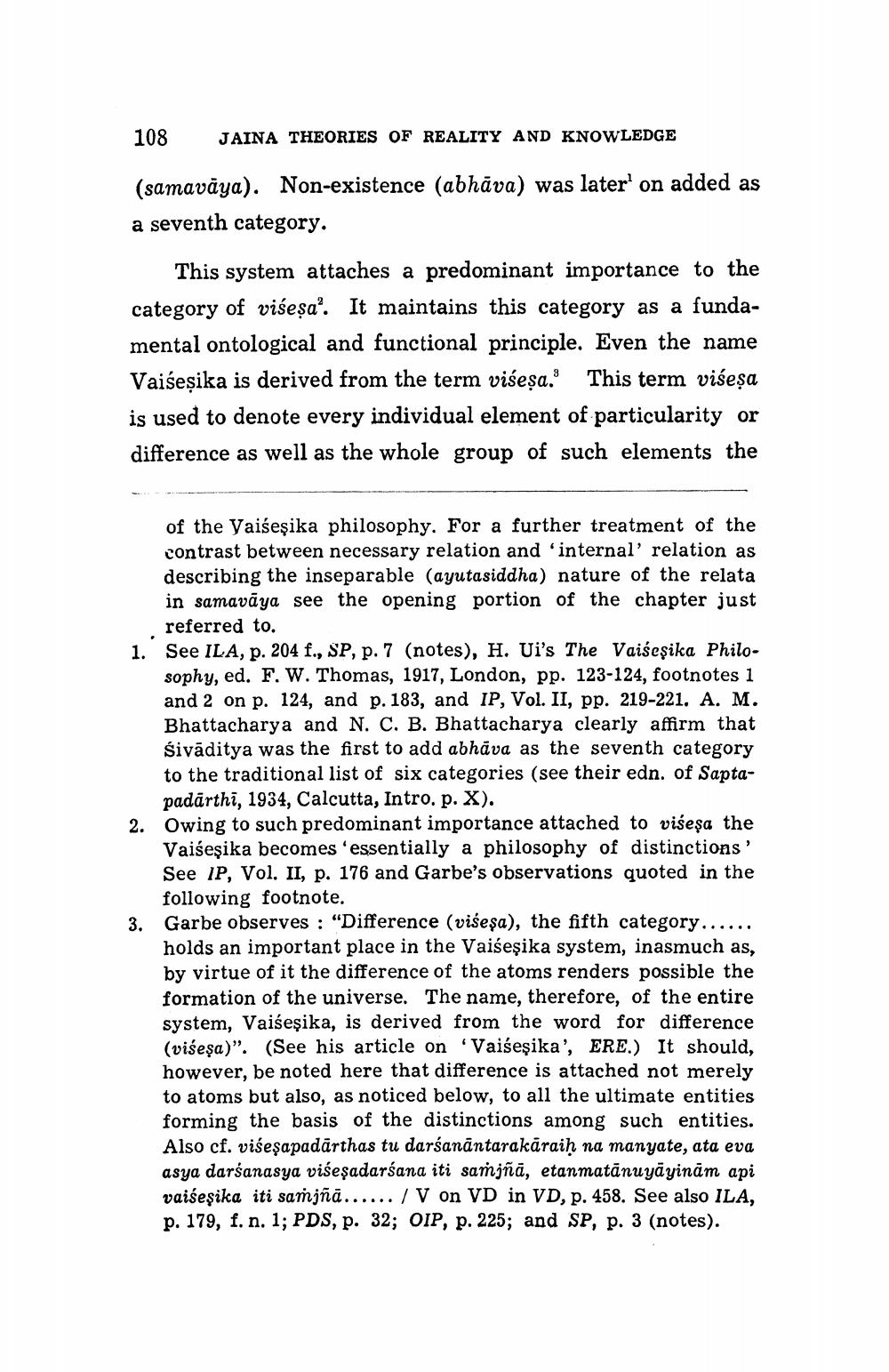________________
108
JAINA THEORIES OF REALITY AND KNOWLEDGE
(samavāya). Non-existence (abhāva) was later' on added as a seventh category.
This system attaches a predominant importance to the category of viseșa”. It maintains this category as a fundamental ontological and functional principle. Even the name Vaišeșika is derived from the term viśeşa.' This term visesa is used to denote every individual element of particularity or difference as well as the whole group of such elements the
of the Yaiseșika philosophy. For a further treatment of the contrast between necessary relation and internal relation as describing the inseparable (ayutasiddha) nature of the relata in samavāya see the opening portion of the chapter just referred to. See ILA, p. 204 f., SP, p. 7 (notes), H. Ui's The Vaiseșika Philosophy, ed. F. W. Thomas, 1917, London, pp. 123-124, footnotes 1 and 2 on p. 124, and p. 183, and IP, Vol. II, pp. 219-221, A. M. Bhattacharya and N. C. B. Bhattacharya clearly affirm that śivāditya was the first to add abhāva as the seventh category to the traditional list of six categories (see their edn. of Sapta
padārthi, 1934, Calcutta, Intro. p. X). 2. Owing to such predominant importance attached to višeşa the
Vaišeşika becomes 'essentially a philosophy of distinctions' See IP, Vol. II, p. 176 and Garbe's observations quoted in the following footnote. Garbe observes : "Difference (višeşa), the fifth category...... holds an important place in the Vaiseşika system, inasmuch as, by virtue of it the difference of the atoms renders possible the formation of the universe. The name, therefore, of the entire system, Vaišeşika, is derived from the word for difference (viśeşa)”. (See his article on Vaiśeşika', ERE.) It should, however, be noted here that difference is attached not merely to atoms but also, as noticed below, to all the ultimate entities forming the basis of the distinctions among such entities. Also cf. višeşapadārthas tu darśanāntarakāraih na manyate, ata eva asya darśanasya višeşadarśana iti samjña, etanmatānuyāyinām api vaiseșika iti samjñā....../V on VD in VD, p. 458. See also ILA, p. 179, f. n. 1; PDS, p. 32; OIP, p. 225; and SP, p. 3 (notes).




